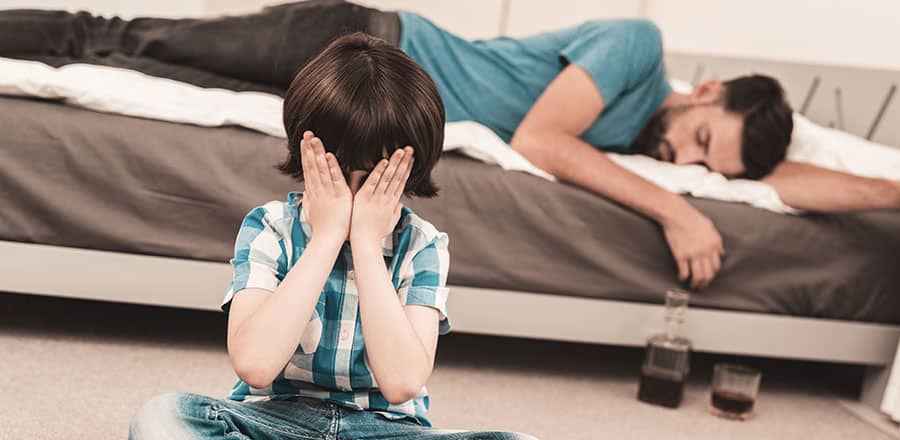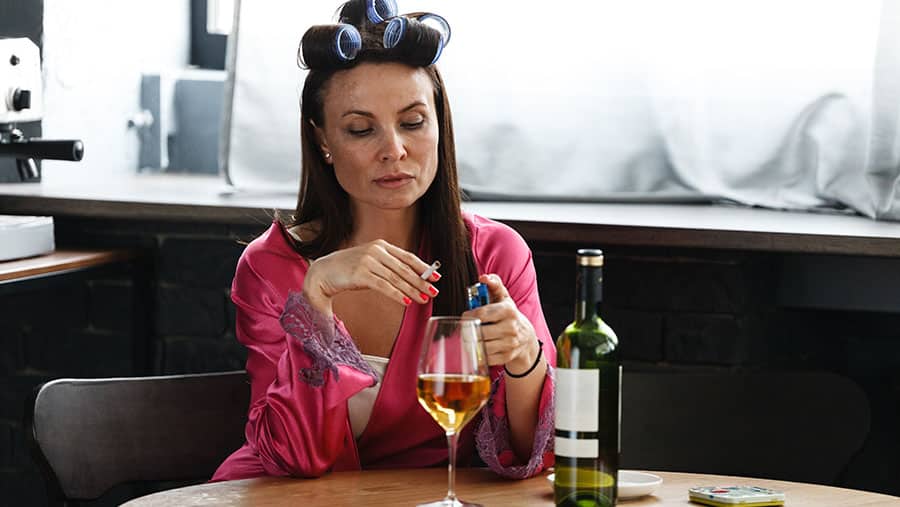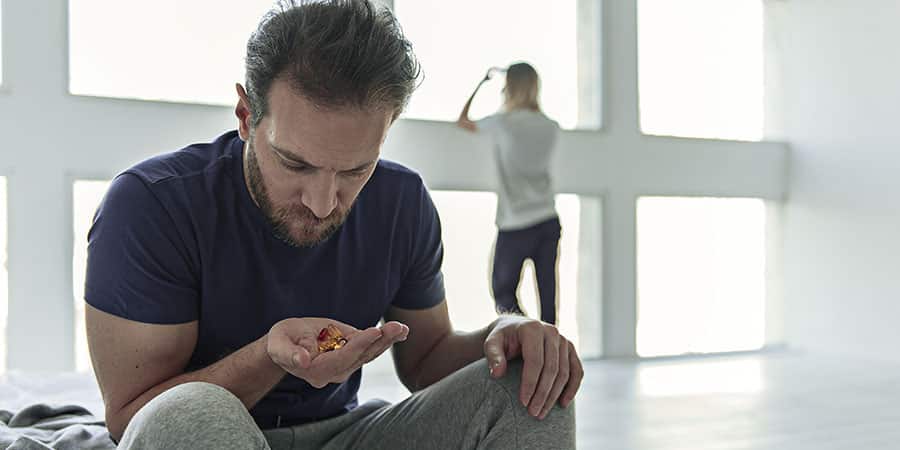How To Help Your Parent Get Into Drug Addiction Treatment
Having a substance use disorder (SUD) means that a person uses alcohol or drugs to the extent that they can no longer control their use. Hotel California by the Sea offers addiction treatment programs for young adults, women, and men suffering from drug abuse, alcohol abuse, and co-occurring mental health conditions.
Many of our clients are parents who love their children but are inescapably addicted to drugs or alcohol. They often enter treatment trying to recover so that they can get back to being the person they used to be or realize their full potential permanently.
How Drug and Alcohol Addiction Affects Children

Substance use disorders wreak havoc on peoples’ lives; its direct and collateral effects are far-reaching. An addict often has other mental health issues that coincide with their SUD. At Hotel California by the Sea, we call these co-occurring issues or dual diagnoses.
Your parent’s abuse may lead to legal issues. Often, a drug or alcohol addict has trouble getting or keeping steady employment. Finances are often a problematic result of substance abuse. Substance use disorders also create other medical issues for users.
A substance use disorder can ruin an addicted person’s life. It could also cause many adverse and long-lasting effects on family members (especially minors and adult children). Children of addicted parents often end up having a lower socioeconomic status. They suffer from more hardships in their academic lives, as well as their social lives. Children of parents with a SUD have trouble functioning within their own nuclear family, compared to children who have parents that were never addicted to alcohol or drugs.
And another easy-to-guess fact is that parents with SUDs are more likely to have children who go on to develop their addictions to alcohol or drugs, or often to both substances.
This is not just a small problem, experienced by a tiny percentage of our United States population. SAMHSA reports that “an annual average of 8.7 million children aged 17 or younger live in households in the United States with at least one parent who had a SUD. This represents about 12.3 percent of children aged 17 or younger who resided with at least one parent with a SUD.”
This means that one in eight children live with, or have lived with, a parent who is an addict. If you are an adult who has experienced having a loved one in your life who is under the influence of drugs or alcohol, you know how scary it can be to be around that person. You can relate to the depression and anxiety that it has created for you. You just want to get away from this person. Or, maybe you want to help them but feel it is hopeless. Imagine being the child of a parent with a SUD. You have nowhere to go, nobody to turn to. Maybe you don’t have to imagine this, because you were that child. And now you are an adult.
How To Know If Your Parent Has A Drug Addiction
Although you can sense something is wrong with your parent’s behavior or personality, it may not be entirely clear that they’re suffering from a form of addiction.
Perhaps you’re unsure whether your mother or father would be diagnosed with a substance use disorder by a medical professional, despite the more subtle changes you see happening in their lives.

There are a few things you can consider to help determine if your parent may be an addict. Consider these signs and see how many may apply to your parent.
Is your parent isolating themselves?
A person with an addiction disorder will often hide away somewhere, whether in their bedroom, bathroom or another secluded part of their home. Of course, everyone wants and needs time alone. Still, if they are excessively reclusive, this could be a signal that something is wrong.
Does your parent sleep a lot – or very little?
Okay, we all need some extra sleep once in a while, but if it exceeds ten hours a day, for several days in a row, there may be a problem. Oversleeping can be a sign of many mental health issues, including a substance use disorder.
On the flip side, sleeping little can also be a sign that your parent abuses drugs or alcohol. Amphetamines, for example, can cause poor sleep or prevent people from sleeping altogether. Meanwhile, alcohol can disrupt someone’s healthy sleep cycle and even cause insomnia in some individuals.
Does your parent seem to follow strange or irregular eating habits?
Most people’s bodies require fairly structured eating habits. But if your mom or dad is struggling with addiction, they may either skip too many meals or overeat.
Does your parent avoid responsibilities?
Parents with substance abuse may eventually suffer from unemployment and other professional consequences. A parent suffering from a substance use disorder may begin ignoring essential phone calls, emails, or texts, or even stop paying their bills, if they are suffering from an addiction.
Is your parent’s hygiene slipping?
People suffering from addiction sometimes tend to neglect their hygiene. Ask yourself: is my parents forgetting their household chores? Or, is my parent looking unusually disheveled and completely ignoring their appearance? These are all signs that they may be abusing drugs or alcohol.

Is my parent struggling with money-saving too little and spending too much?
Financial issues are often a trademark consequence of one suffering from addiction. Does your mom or dad seem to have trouble holding on to money, for reasons they cannot or will not explain? Do they ask to borrow money from you or others? Worse- have they stolen money from you or others? Financial problems are often a result of drug or alcohol abuse.
Are they losing friends? Are they socializing with different friends?
Take a look at who your parent is surrounding themselves with. Have they lost healthy relationships? Do their current friends and associates seem to be addicts or struggle with some form of substance abuse issues? It may be easiest to spot substance use disorders in the people with whom they associate. It is prevalent for those with a SUD to surround themselves with other addicts.
One of these attributes or behaviors may be coincidental – maybe you think you’re overreacting. But deep down inside, if your parents are struggling with something, you will know. Admitting that your parents may have an issue with substance abuse can be hard, and it’s not always easy to put the signs of a substance use disorder together when you love someone.
Use the above signs to put their substance use in perspective. Exhibiting one or two of these signs might just mean something is temporarily wrong. Three or more may point to careful consideration that your parent is dealing with a substance use disorder.
You can contact a mental health professional at Hotel California by the Sea. Check out our website or participate in a live chat. Our knowledgeable and understanding clinical professionals are well-versed in the signs of a SUD. They can assist you in talking with your mother or father about beginning their addiction recovery.
Where To Get Your Parent Help For Addiction
You are the child of a parent who has a substance use disorder. Maybe you are used to cleaning up after them, covering up for them, being angry with them, being embarrassed by them, worrying about them, lending them money, paying their bills, finding their drug of choice for them, or being afraid of them. The fact that you are researching this subject means that you realize that you cannot be the substitute for professional help for your addicted parent. You know what needs to happen next.
But how do you convince your mom or dad to go to treatment? Well, you are not the first child concerned with your parent’s alcohol or drug use, who desperately wants their parent to seek treatment for their addiction. Hotel California by the Sea (HCBTS) is an addiction treatment center located in Orange County, Southern California, that can offer the helping hand you’re looking for.

Hotel California by the Sea can introduce you and your parent to a lifechanging recovery process. We treat clients with alcohol addiction and drug addiction, as well as those who have co-occurring disorders, such as depression, anxiety, and post-traumatic stress disorder, among other issues, every single day. In our state-of-the-art facility in Southern California, we can assist your parent in creating a treatment plan that will work for them. We offer many programs, including access to 12 step programs, support groups, detoxification, in-patient treatment, outpatient programs, and partial hospitalization treatments.
Hotel California by the Sea offers recovery plans that include individual therapy, group therapy, and family therapy. That will be an essential piece for you, as a child of an addicted parent. Don’t waste another minute having to worry about your parent. Reach out to Hotel California by the Sea and allow them to guide you and your parent through the recovery process.

